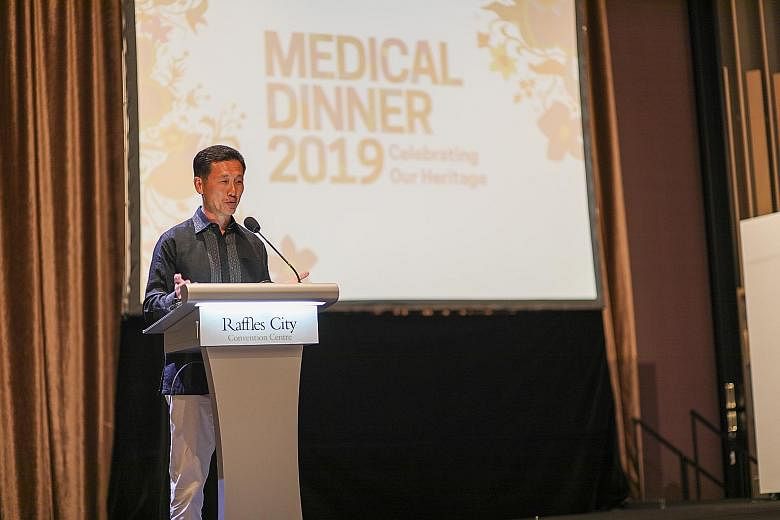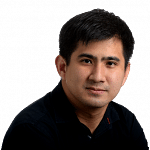The world is seeing a weakening of public trust towards institutions, be it the medical profession, education system, mainstream media or even governments, said Education Minister Ong Ye Kung.
"Nobody is spared," he said at an annual dinner for the Yong Loo Lin School of Medicine on Wednesday.
And when trust is weakened, the system and institutions can no longer serve people well, he told the audience of around 900 alumni and fresh graduates of the National University of Singapore's medicine and nursing courses.
The text of Mr Ong's speech was released to the media yesterday.
He discussed the problems arising from this weakening of trust, and spelt out four principles to preserve trust: Be competent and safeguard the role of expertise, uphold codes of conduct, give back to society as a professional community, and stay true to the ethos to serve.
He cited a recent article written by Dr Wong Chiang Yin, the former president of the Singapore Medical Association, in The Straits Times on the impact of mistrust in the medical profession. Dr Wong had said if doctors start seeing every patient as a potential plaintiff, they would start to practise "assurance and avoidance defensive medicine".
Mr Ong said: "This means or-dering more tests and procedures or prescribing more medicine than required for assurance, or ruling out higher-risk procedures on patients even though it may be the correct treatment, for purposes of avoidance."
He also cited how, if a front-line public officer suspects his conversation is being secretly recorded and could be uploaded to social media, then there is no trust, and service cannot be good. "The public officer will ensure he sticks strictly to the rules, the procedures and the script because that is publicly most defensible. Forget about the exercising of judgment and flexibility to cater to exceptional circumstances.
"When there is no open and honest communication, and trust is weakened, the system and the institution as we know it can no longer serve its recipients well. In fact, you will start to get perverse behaviour like defensive medicine," he added.
Mr Ong gave several possible reasons for the weakening of public trust, including an asymmetry of information - when the service provider knows much more than the buyer - and customers having more access to information and knowledge, like from the Internet.
Patients now question the doctor's advice and present alternative options they read about, he noted. "We should not mistake this as a lack of trust in our profession or our judgment. What it means is that what we are doing matters a lot to the public, and they want to know more about what we are doing."
Mr Ong said he could not really pinpoint the reason for the current erosion of trust, but said digital technology has changed the "texture of human relationships in society and affects trust". For example, while bad news often gets exaggerated and travels much faster than good news, this process has "gone into overdrive" with digital technology.
"Imagine if we all read a piece of negative news about a profession every day - over time, your trust in it will be eroded, even though nothing about the profession has changed," he said.
He added that professionals and public institutions need to do their utmost to earn and retain public trust. This comes, for example, from maintaining high standards of teaching and training in institutions that impart professional knowledge, whether in the medical, military or education sector.
Codes of conduct must be upheld. "The Singapore Medical Council sets out guidelines for practice such as the ethical code and regulates the conduct of doctors. But a good code of conduct needs to work both ways, protecting the client as much as the service provider, in this case the doctors, by setting out common standards and expectations about the practice," he said.
Addressing the new graduates, Mr Ong said that like them, he belongs to the "newest batch of my profession" - the fourth-generation ministers. "And just like you, we need to be competent in running our organisations and uphold a high standard code of conduct. We need to ensure that policies serve the people and the society for the long term, even if this is not evident in the short term.
"Above all, we need to stay true to the ethos to serve as well. We have the privilege of holding positions of trust, and we must do our utmost to safeguard it," he added.


